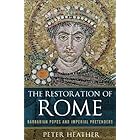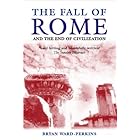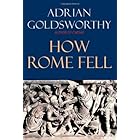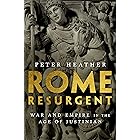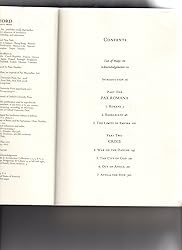| Digital List Price: | $14.99 |
| Kindle Price: | $9.99 Save $5.00 (33%) |
| Sold by: | Amazon.com Services LLC |
Your Memberships & Subscriptions

Download the free Kindle app and start reading Kindle books instantly on your smartphone, tablet, or computer - no Kindle device required.
Read instantly on your browser with Kindle for Web.
Using your mobile phone camera - scan the code below and download the Kindle app.

OK
 Audible sample Sample
Audible sample Sample 


The Fall of the Roman Empire: A New History of Rome and the Barbarians 1st Edition, Kindle Edition
A leading authority on the late Roman Empire and on the barbarians, Heather relates the extraordinary story of how Europe's barbarians, transformed by centuries of contact with Rome on every possible level, eventually pulled the empire apart. He shows first how the Huns overturned the existing strategic balance of power on Rome's European frontiers, to force the Goths and others to seek refuge inside the Empire. This prompted two generations of struggle, during which new barbarian coalitions, formed in response to Roman hostility, brought the Roman west to its knees. The Goths first destroyed a Roman army at the battle of Hadrianople in 378, and went on to sack Rome in 410. The Vandals spread devastation in Gaul and Spain, before conquering North Africa, the breadbasket of the Western Empire, in 439. We then meet Attila the Hun, whose reign of terror swept from Constantinople to Paris, but whose death in 453 ironically precipitated a final desperate phase of Roman collapse, culminating in the Vandals' defeat of the massive Byzantine Armada: the west's last chance for survival.
Peter Heather convincingly argues that the Roman Empire was not on the brink of social or moral collapse. What brought it to an end were the barbarians.
- ISBN-13978-0195159547
- Edition1st
- PublisherOxford University Press
- Publication dateDecember 1, 2005
- LanguageEnglish
- File size7634 KB
Customers who bought this item also bought
Editorial Reviews
Review
About the Author
Peter Heather teaches at King's College, London. A leading authority on the barbarians, he is the author of The Goths, Goths and Romans, and The Huns.
Product details
- ASIN : B000SEI0JQ
- Publisher : Oxford University Press; 1st edition (December 1, 2005)
- Publication date : December 1, 2005
- Language : English
- File size : 7634 KB
- Text-to-Speech : Enabled
- Screen Reader : Supported
- Enhanced typesetting : Enabled
- X-Ray : Not Enabled
- Word Wise : Enabled
- Sticky notes : On Kindle Scribe
- Print length : 580 pages
- Best Sellers Rank: #248,036 in Kindle Store (See Top 100 in Kindle Store)
- #146 in History of Medieval Europe
- #212 in Ancient Roman History (Kindle Store)
- #235 in Italian History (Books)
- Customer Reviews:
About the author

Discover more of the author’s books, see similar authors, read author blogs and more
Customer reviews
Customer Reviews, including Product Star Ratings help customers to learn more about the product and decide whether it is the right product for them.
To calculate the overall star rating and percentage breakdown by star, we don’t use a simple average. Instead, our system considers things like how recent a review is and if the reviewer bought the item on Amazon. It also analyzed reviews to verify trustworthiness.
Learn more how customers reviews work on AmazonReviews with images
-
Top reviews
Top reviews from the United States
There was a problem filtering reviews right now. Please try again later.
I like history from this period. The author is careful to document his sources as a good historian should. I guess I always thought more written record existed about this period of time, but it turns out that much of the history of this time comes from a very few sources. Given that history even today is often very slanted, I have no doubt that it was slanted toward the historians' employers when the history was written.
It also seems that a fair amount of what written material we do have was put down on paper several generations after the fact based apparently on other works that have not survived, folklore and oral history. Plus whatever fancy the historian may have added on his own.
A quote from the introduction might be instructive. "This type of interpretation requires historians to treat ancient authors, not as sources of fact, but rather like second-hand-car salesmen whom they would do well to approach with a healthy caution."
The book has a few annoyances here and there that make me think it was originally hard copy, scanned, and then re-edited for the Kindle. If that was the case, it was done fairly well. The footnotes and illustrations are hotlinked in both directions. The index is also hotlinked. The illustrations (pictures and maps mostly) were somewhat of a disappointment to me. They are of low quality and poor resolution so were of limited value to me. There are also some curious word choices here and there that may be an artifact of the scanning process if that is what happened, along with some footnotes that seem to be in the wrong spots.
The book was full of fascinating history. I never realized that the eastern Roman empire expended so much of its resources on trying to prop up the western empire. Or how crucial the north African provinces were. The back stories where the author filled in some of the political background to what I did know was pretty interesting to me as well.
I admit I mostly skipped over the Latin poems, speeches, and other surviving writings and their translations after the first few. I just did not get them at all. The author did go to a lot of trouble to fill in the blanks for me though, explaining what the author of these writings was actually talking about. It turns out the politicians back then also had very skillful propagandists at work. I guess nothing is really that new in the world's second oldest profession.
This is good history to me, even though I am not a learned historian and don't feel competent to comment on the scholarship of the work, but the history is fascinating and the writing was actually readable, not something that you always see in a scholarly work. I did learn a lot from reading this long book. I mostly read it during my lunch hour at work and while watching TV at home, so I only got maybe 5 hours a week on it. It is not the kind of thing I can read very fast like most fiction, so it took a long time for me to finish it. I got it back in January and started reading it then. It took me until early May to finish it. I got the book for free in the Kindle edition. Not sure why the author put it up for free, but I am glad he did. This is probably not a book for the casual reader. The length, and my need to consider what is being written in an analytical fashion makes it more of a time investment than many might be willing to commit to read a single book.
For instance, closer to the end, you read about Orestes, Roman general, father of Romulus Augustus (the last emperor of Rome), and about Odoacer/Odovacar, first King of Italy after the fall of the Western Roman Empire. But a few chapters earlier, there was an episode where Orestes and Odoacer's father, Edeco, were serving together under Attila, King of the Huns. So it was not black and white, Romans versus barbarians like I had always thought. The fathers of the last Roman emperor and of the first "barbarian" King of Italy had been on the same side - under Attila!
There are many other instances where the author makes connections between the Eastern and Western Roman empires, between what was happening in Asia and Africa, and how exactly that affected Rome.
The author does a very good job of presenting the large history of the epoch, which for the first time has become more clear to me - the sequence of events, their causes, their consequences, it is all there. He also includes interesting stories, often based on written accounts left by people who took part in the events reported. The solid quality of the book rests mainly on those two pillars: broadness and primary sources.
But there are also interesting archaeological references, good background information and a profusion of maps (sixteen maps - so you will know exactly what region or road or province the author is talking about).
It's a beautiful narrative of the decline of the Western Roman Empire and of how people were affected by it. I finished the book with almost no lingering doubt about anything related to the subject, so clear and complete is the text - without being excessive.
As other reviewers have pointed out, it's obvious also to me that the barbarians were not the only cause of the fall of Rome. But the author can keep his (stated) beliefs, and I will keep mine - and I did not enjoy the book less because of that. I had read before about the internal circumstances leading to the Roman decline, so the barbarians angle was an welcome addition to my reading on this subject.
Although the author clearly indicates he wrote the book "for a more general audience", there are signs that he tried not to be too far from an academic standard. A few times the text becomes a bit repetitive and adopts a dry academic tone. This is the reason why I gave the book four stars, and not five. I would have given it four and a half stars if that was possible. (I didn't like either the too many notes, and the fact that they are at the end of the book, which is the worst location for notes, in my opinion.)
(- Now I would like to find a book as good as this one about the impact on the Eastern Empire of the rise of Islam. The author put me on this track, when he wrote that the rise of Islam robbed Constantinople of three-quarters of its revenue, and added that after the year 700 the Byzantine Empire was actually "another successor state rather than a proper continuation of the Roman Empire".)
Top reviews from other countries
What I dont like about this explanation is lack of institutional arguments - why did Roman empire fall in late fifth century and not late third century. Difference in culture, army composition, political structure, level of 'venality' - such answers are only summarily attended to by the author.
Regardless, Heather makes an extremely important contribution to the historiography of the Roman Empire.
Moi qui ne connaissait que fort peu de choses sur cette période historique (les 4ème et 5ème siècles de notre ère en Europe), souvent considérée comme très compliquée et illisible, je ressors de cette lecture exigeante ravi car j'ai le sentiment d'avoir compris l'essentiel sur le Chute de l'Empire Romain et d'avoir, en bonus, appris une foule d’anecdotes passionnantes.
Heather s'appuie sur les sources de l’époque qu'il sait rendre attrayantes, ce qui, il faut bien l'avouer, n'est pas évident: quiconque s'est essayé à lire la Guerre des Gaules par exemple sait ce que je veux dire.
Et pourtant, c'est avec un extrait de la Guerre des Gaules que l'auteur commence son livre de façon passionnante, comme dans un film, un peu à la façon du long métrage Gladiateur de Ridley Scott.
J'ai particulièrement apprécié, entre autres, sa narration, appuyée sur un texte sauvé de l'oubli par l'empereur byzantin Constantin VII Porphyrogénète au Xème siècle, d'une ambassade romaine auprès d'Attila : on s'y croirait!
Heather propose une explication somme toute simple de l’effondrement de l'empire romain d'occident qui ne repose pas sur une supposée "décadence" comme on le croit encore souvent. Le choc barbare et leur établissement en Espagne, en Aquitaine, en Afrique du Nord privèrent l'empire romain de sources fiscales indispensables au maintien d'une grande armée: la spirale du déclin s'enclencha alors.
Ajoutez à cela le fait que les élites romaines de l’empire, tous grands propriétaires terriens, ne pouvaient pas emporter leur richesse (la terre) avec eux et devaient donc s'accommoder des nouveaux dirigeants "barbares" (Wisigoths en Gaule et en Espagne; Vandales en Afriuqe du Nord; etc.), quitte à mettre de côté une partie de leur romanité, et l'on comprend comment en une centaine d'années environ l'empire romain se démembra pour donner les ancêtres de nos états européens actuels.
Un livre passionnant donc, écrit par un spécialiste qui sait , comme souvent les anglo-saxons, se mettre à la portée du grand public cultivé. Je le recommande vivement tout en regrettant qu'il ne soit pas traduit en français.
Unlike Edward Gibbon in 'The Decline & Fall...', who threw away the Western Empire for love of Byzantium, Heather remains true to his title. It is an enormous subject and, although familiar with the subject, I found myself constantly introduced to new aspects. The work ,really in a way is like a spiral in reverse. It starts at a narrow point - Caesar, SPQR, the Principate etc. - and widens out gradually. So he deals with Rome's vulnerability at three points - the Rhine, the Danube and Mesopotamia. Then pops over the borders to look at the causes of such pressure, the Sasanian dynasty in Persia, the Goths the other side of the Danube and the Germanic peoples beyond the Rhine. As relations between Rome and the barbarians are described the reader can recognise both variation and flexibility in such relations but also how so much of historical scholarship has been forced to see matters from the Roman standpoint.
After looking more closely at the barbarians, Heather produces a masterly examination on 'the limits of empire'. The basic premise is that the Roman Empire had outgrown its chance of survival. So distances and shortcomings in both administration and communications undermined the effectiveness of the imperial rescript. The Emperor could only act on what he knew and the results could be modified on what both he and the locals knew. Heather dwells on the work of Tchalenko who questioned the thesis of rural decline largely due to imperial taxation after c.300 - as I'd been taught re' Roman Britain when studying AL History fifty years ago. There is a problem: evidence would indicate that the outdated image of rural decline actually persists in Italy and the northern frontiers. Heather cannot explain why? Might I suggest that a couple of factors might be that these areas were more under the imperial eye (& fiscal effectiveness); also I suspect a higher degree of 'out-sourcing' (to use a modern term) by those controlling the wheels of power at the centre. Again Heather notes the decline in 'civic display', pointing out how those with influence migrated away from local to central areas of power - e.g. the rapid rise in the numbers of upper imperial bureaucracies laying down the rules, although 'the process was taken over by locals responding to the rule changes and adapting them to their own interests' (P.117). In sum, life became too complex for central bureaucracy to handle, as contemporary governments are discovering nowadays. Heather argues that the army was neither under-manned nor under-paid when first it had to face unprecedented problems. Thankfully, he dismisses the arguments of Gibbon that the Empire was undermined by the conversion to Christianity. Apart from the theological quagmire of 'orthodoxy' during these centuries affecting the 'chattering classes' (my phrase not Heather's) the population was probably little troubled by this. Wealth granted to the Church simply replaced that granted to pagan institutions (N.B. Coptic Egypt); another point was that the numbers rushing off to a 'religious life' were a tiny minority. 'At the top end of Roman society, the adoption of Christianity made no difference to the age-old contention that the Empire was God's vehicle in the world' (P.125). He compares the system to the one-party state as seen in the Soviet Union, I would suggest Mao's China c. 1960 being a better example: however, he does describe the expansion of a legal 'apparatchik-style' privileged minority, as also seen in the contemporary growth of lawyers and accountants, dealing with the complexities central authority couldn't handle. Finally, his conclusion is quite clear: 'there is no sign in the fourth century that the Empire was about to collapse....... the late Empire was essentially a success story'(P.141). Nevertheless, within a couple of pages the reader DROPS into the section labelled 'Crisis'. May I suggest this relates to the unfashionable ideas of Arnold Toynbee regarding 'Challenge and Response' in 'A Study of History' (1934-61)?
The crisis came with the intrusion of Goths across the Danube border in 375, supposedly seeking asylum from the Huns. Why this occurred is obscure. The Gothic ruler, Ermanaric, features little in Heather's work, but large in legend. Might I suggest that Ermanaric applied pressure vs. the Huns who resisted, found defences weaker than expected and overthrew Ermanaric, forcing the Goths to flee westwards. A similar situation occurred in 1219 when the Kwarizmian ruler, Ala ad-Din Muhammad, tried to apply pressure against the Mongols under Genghis Khan to the east. The Mongols struck, overthrew his kingdom and poured into Persia - following that with advances through Russia etc.
Heather provides an excellent introduction to the Huns, arguing that their success depended mainly on a long, reflex bow which was asymmetric (knew to me!). Heather rejects firmly the idea that the Huns possessed stirrups, which I thought was debatable. He wades into the origins of the disaster of Adrianople (378), rejecting the usual explanation based on Roman sources. Essentially he argues the Empire was over-stretched because of tension with Persia, failed to control details of allowing the Goths into the Empire (e.g. keeping the two major groups (Tervingi and Greuthingi) apart and the treatment of the Goths by local officials) and actual strategy and tactics.
Afterwards, it was a question of patching up a structure on the point of collapse. Peace was made with the Goths under the deceptive glow of a Gothic surrender. A string of Emperors came and went - Gratian (375-83), killed fighting off usurpers; Valentinian II (375-92), and Honorius (395-423), nonentities not deserving the imperial throne; a collection of semi-legitimate emperors, such as Maximus (383-88), flashing and exploding in the chaos of internecine warfare; and Theodosius I (379-95), who tried to establish order out of chaos (like predecessors Diocletian and Constantine)but lacked the time to make it firm enough to survive the next crisis.
In 410 Rome fell to the Visigoths and the next 66 years was really a 'long goodbye' to borrow a title. Heather explains all this clearly and fully, with a masterly use of source material. He steps into a series of controversial topics with a sureness of touch; such topics are controversial largely because of the paucity of sources (e.g. the butchery of the work of Olympiodorus of Thebes by later writers / copyists) and their one-sidedness. He applies logic to sort out problems - certainly as a medievalist he must be well-used to such approaches. In this way he handles the gap between the Gothic victory at 'Hadrianople'(sic) and the sacking of Rome in 410; the migration of Vandals, Alans and Suevi in 406 and the early stirrings of Hunnish influence in the 'volkerwanderung' (an antiquated term he never uses). A masterly section is his description of the Vandal intrusion into North Africa. Meanwhile he tackles the infighting at the top of the Roman power structure, requiring close examination of source material, which explains partly how Roman power was swept aside.
In the midst of this twilight of a millennium one man stands out in the narrative like a colossus and that is Aetius, performing miracles in restoring imperial control in Gaul and ABOUT to repeat the act in North Africa when in pour the Huns - now under the determined and opportunistic control of Attila. Heather does not hide the fact that Aetius was a fixer, a juggler keeping so many balls in the air to maintain the impossible, the survival of the Western Roman Empire.
The challenge appeared to dissipate with the sudden death of Attila in 453 but it proved to be short-lived as the Western Empire was snuffed out in 476. It is no coincidence surely that Aetius was murdered(454) by Valentinian III and within six months the murderer, the last Emperor with any authority within the Western Roman Empire, was in his turn assassinated. As Heather remarks: 'Aetius's death was far more than one man's tragedy. It also marked the end of an era. The death of Attila and the end of the Hunnic Empire not only made it possible for Valentinian to contemplate life without Aetius, it also undermined the delicate balance of powers by which Aetius had kept the western Empire in business.' (PP 374-75) Thereafter heather's tale is of little men doing nasty things to each other until the dregs of a once mighty system trickled away.
The book is excellently written, with good citing of sources and a useful glossary. In fact, it is the best book I've read on an important, but usually ignored, subject..
One final point. My final impression is that the book should be retitled as 'The Fall of the Roman Empire: A Study in Near-Survival'. It certainly deserves 5 stars.





